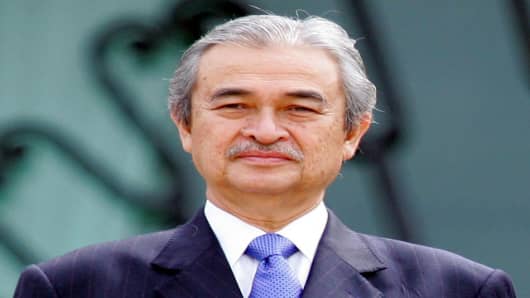
Bazuki Muhammad
Visiting Kazakhstan President Nursultan Nazarbayev, right, and Malaysian Prime Minister Abdullah Ahmad Badawi pose outside the latter's office in Putrajaya, outside Kuala Lumpur, Malaysia, Monday, June 26, 2006. Nazarbayev arrived in Malaysia Sunday for a three-day visit. (AP Photo/Bazuki Muhammad, Pool)
"The result of the election was a strong message that I have not moved fast enough in pushing through with the reforms that I promised to undertake," Abdullah said in opening Invest Malaysia, the country's main annual investor conference, in Kuala Lumpur. "I thank the Malaysian people for this message: point well made and point taken."
"In this second term as prime minister, I intend to implement a bold agenda for addressing the concerns of the people as expressed through the ballot box," he added.
The ruling coalition suffered its worst-ever election setback on March 8. It retained a simple majority in federal parliament but lost control of five states to opposition parties who campaigned on issues of corruption and racial inequality.
The election result prompted sweeping changes to Abdullah's cabinet, unveiled last week, and some major policy changes have already been signaled, including reforms to the judiciary and a review of Malaysia's murky system of subsidies.
Malaysia subsidizes items ranging from rice and sugar to steel and cement under a system that gives some firms a monopoly or oligopoly over the supply of price-controlled items. Marketed as poverty alleviation, the system benefits favored companies.
"Most urgently I plan to introduce a package of measures to alleviate the burden faced by lower-income Malaysians," he said.
Among the specific measures he announced were a new system of market-makers to boost liquidity in Malaysian shares and the relaxation of bond-market approvals, including simpler approvals for issues on investment-grade, non-ringgit bonds.
He also gave the go-ahead for establishment of a third Malaysian credit-rating agency which could be owned up to 49 percent by foreign strategic investors.


